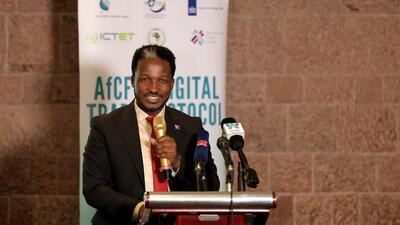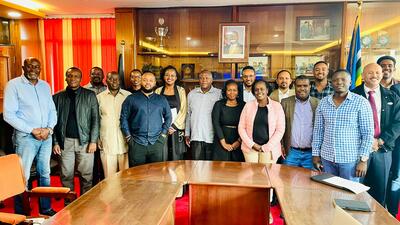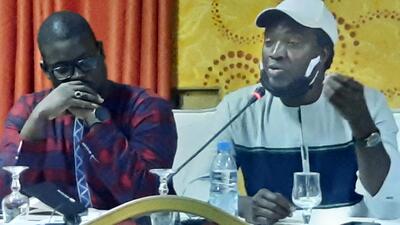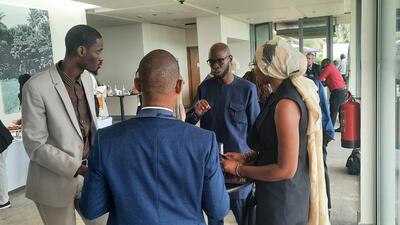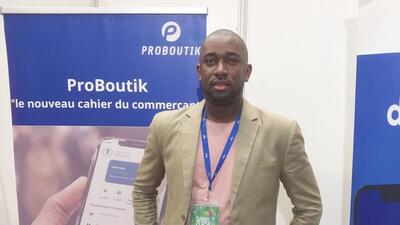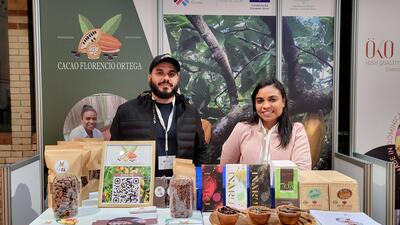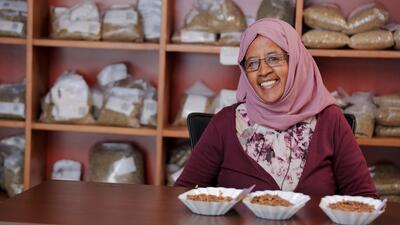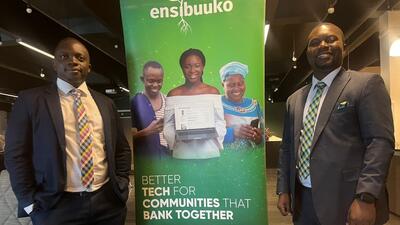


Securing Mali's future with sustainable farming
Malian start-up Kool Farmer follows the model of ecological micro-market gardening to fight food insecurity and create jobs.
Mali is one of Africa's top five gold producers, extracting nearly 65 tonnes of gold every year. The precious yellow metal is one of the country's main resources, and a major source of export revenue. Yet the economic spin-offs are of little benefit to local populations.
Ladji Fainke, an agricultural engineer by training, believes that the land holds other treasures capable of generating sustainable employment and supporting Mali's economic development. By setting up Kool Farmer in Bamako in 2016, Ladji is banking on sustainable agriculture and demonstrating that market garden production is a real path to the future.
Eco-friendly market gardening: the other gold of Mali
On one and a half hectares, Ladji grows fruits and vegetables according to the principles of agroecology, while regularly supplying the stalls of nearby markets and stores. In doing so, he promotes short supply chains, maintains healthy soils and provides his local community with an affordable harvest.
“I use no-till market gardening techniques,” says the engineer. “I produce a wide range of nutritious fruits and vegetables on a small, economically viable farm. My aim is to pass this model on to young people in rural areas, to encourage them to set up their own eco-friendly micro-farms.”
More and more growers are coming to Kool Farmer for training and advice on seed selection. “I want to show the rural community that it's possible to create your own job and make a good living from farming, if you apply the right techniques,” Ladji continues. “I invite growers to join my Sol Vivant Mali cooperative by registering directly on the Kool Farmer website. Over the next few years, I hope to create 200 jobs and train 1,000 young agribusiness entrepreneurs. Eventually, I'd like to deliver homes. To achieve this, I'm working on an e-commerce site and a mobile application.”
Expanding training and partnerships
To achieve his goals, Kool Farmer is supported by the International Trade Centre’s Netherlands Trust Fund V (NTF V) FastTrackTech project. In the past two years, Ladji has benefited from personalized coaching to help him focus on the essentials: “With the help of NTF V's mentoring, I have been able to secure my market gardening business. I've learned how to calculate my break-even points, identify the most productive varieties and draw up a planting calendar. Today, I know that my priority is to develop the training aspect. I use digital technology for this. Market gardening, composting and sowing techniques, soilless agriculture... all my courses are sold online on the Kool Farmer website.”
Lin Dejean, the NTF V consultant who follows Ladji's work, says that this coaching will enable him to develop projects on a larger scale, particularly with industrial sites: “We worked together to draw up an offer that should enable Kool Farmer to approach major mining companies and establish CSR partnerships. And since entrepreneurship is never a solo adventure, Ladji's next step will be to put together a team,” explains the coach.
Today, Kool Farmer employs three people. Tomorrow, the start-up hopes to be able to attract new collaborators to expand its training initiatives across the country, and thus support new cooperatives and family farms. Its aim is to promote a farming industry that is committed to the environment and generates revenue for women and young rural workers.
The Netherlands Trust Fund V (NTF) program (July 2021 – June 2025) is based on a partnership between the Netherlands Ministry of Foreign Affairs and the International Trade Centre. NTF V supports SMEs in the digital technology and agribusiness sectors in Benin, Côte d'Ivoire, Ethiopia, Ghana, Mali, Senegal and Uganda. Its ambition is to contribute to an inclusive and sustainable transformation of agri-food systems partly through digital solutions, to improve the international competitiveness of local tech start-ups and to support the implementation of the export strategy of IT&BPO companies.





